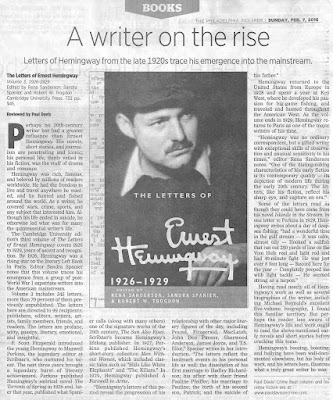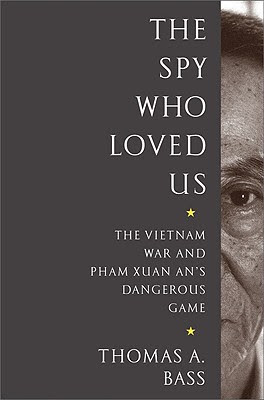The below short story originally appeared in American
Crime Magazine in 2023:
Byrne’s Sitdown
By Paul Davis
I was sitting in a booth at the Penrose Diner in South
Philadelphia waiting for a friend to join me for lunch.
I was drinking a cup of the diner's good coffee and looking out
the window to see if my friend had arrived when I received a text on my phone
that he could not make it.
Not wanting to hog a booth by myself, I started to pick up my
coffee and move to the counter when someone said my name. I looked up and saw
Fred Byrne.
“Paul, you eating alone? Can I join you?” Byrne said.
“Sure. I was waiting for a friend, but he just texted me that he
can’t make it.”
Byrne, a stocky man with gray hair, was about 70 years old. He
was a hardware store owner that I met at a cigar dinner some years
ago. He came up to me at the cigar dinner and told me he recognized me from the
photo that accompanied my crime column in the local newspaper. He introduced
himself and we shook hands.
As we smoked our fine cigars, we spoke of our military service
during the Vietnam War. Byrne had been a Marine at Da Nang in South Vietnam, and
I had been a sailor on an aircraft carrier serving on “Yankee Station” in the Gulf
of Tonkin off the coast of North Vietnam.
I liked him and I gave him my card that had my telephone number
and email address on it. He wrote his telephone number and email address on a
piece of notepaper and handed it to me. But for whatever reason we never
contacted each other.
The waitress stopped by our table and Byrne and I ordered lunch.
Byrne had a copy of the Philadelphia Daily News, a newspaper that I used
to sell to sailors, Marines and yard civilians as a teenager in the 1960s down
at the old Navy Yard, and I later came to write for.
He opened the newspaper and showed
me an article on the murder of John “Johnny Boy” Grillo, a local mobster who
had just been released from federal prison. He had been shot multiple times and
died on the street.
“I read that online this morning,” I said. “I didn’t know him,
but I knew his father Dom some years back. I heard the kid was nothing like his
father.”
“I knew them both,” Byrne said. “I knew the father from the
neighborhood, but only to say hello to. I knew he was a mob guy, but he was
always polite. I knew the kid as he was a friend of my daughter’s.
“Want to hear a story about my “Sitdown” with Dom over his
kid?”
“Sure,” I replied.
I didn’t pull out my notebook or my small tape recorder, as I
didn’t yet know if he was telling me this story for my crime column, and I
didn’t want him to shut him down by asking just yet.
“Well, it wasn’t a formal “sitdown,” as I wasn’t a member of the
mob. Hell, I’m not even Italian. But like I says, Johnny Boy was a friend of my
daughter when they was teenagers."
Our lunch orders arrived and as we ate, Byrne went on to tell me
about the time he was returning to his South Philly rowhome years ago. He was
accompanied by his friend Mike Fratelli, a Philly detective.
Byrne’s teenage daughter and wife and gone to the New Jersey
shore and were staying at his in-law’s summer home. Byrne had remained in South
Philadelphia as he had to work at the hardware store he owned. He met Fratelli,
and they had a couple of beers at their favorite corner taproom.
They walked from the bar to Byrne’s house and when they got
there, Fratelli saw that one of the basement windows and been pushed in. Lights
were on in the basement, and they heard music.
"Your family is down the shore, right?” Fratelli
asked.
“Yeah.”
“Give me your house keys and you stay here,” Fratelli
said.
Fratelli took the keys, drew his Glock service firearm, ran up the steps to
the front door and let himself in.
Byrne bent down and looked in the busted basement window and saw
about four or five teenage boys and girls drinking his liquor from his basement
bar and dancing to the music from his radio.
Byrne, who had a license to carry a firearm, drew his 9mm Beretta and pointed it at the group in his
basement.
“Get the hell out of my house, you punks,” Byrne yelled.
“Fuck you,” one of the boys said.
Byrne fired a round into his basement wall away from the
teenagers as a warning shot. The teenagers ran up the basement stairs in fright
and straight into the arms of Fratelli. Fratelli herded the teenagers out the
front door and onto the sidewalk.
“We thought you were all at the shore,” one of the girls said.
“We just broke in as a goof. We weren’t going to steal anything.”
“I know you. You’re Janice, my daughter’s friend,” Byrne said.
“What the hell do all of you think you are were doing?”
One of the boys, a big and husky teenager, rushed Byrne and
pushed him up against the wall. Byrne slapped the teenager across the back of
his head and face with his Beretta. The kid fell to the sidewalk
bleeding.
“You killed Johnny Boy,” Janice cried out.
The kid stood up and placed his hand on the back of his head.
Byrne told the teenagers to get lost. He told them to never see his daughter
again.
“That kid was Dom Grillo’s kid,” Fratelli said as the teenagers
walked away.
“He shouldn’t have broken into my house.”
The following evening, Janice and her father visited Byrne. The
father apologized for his daughter’s behavior and pleaded with Byrne to not
have his teenage daughter arrested. Byrne told the man he did not plan to press
charges.
The father thanked Byrne and assured him that his daughter would
be punished.
The two men shook hands as Janice looked down in shame and
embarrassment.
While at work the next day, a neighborhood hoodlum strolled into
his hardware store and approached Byrne. Byrne’s hand reached behind his back
to the holster that held his Beretta.
The man smiled and said that Dom Grillo wanted to buy him a
drink at a local bar that night at eight o’clock.
“Tell him I’ll be there.”
Promptly at eight, Byrne walked into the dimly lit bar with
Fratelli. They began to walk to the back of the bar where Dom Grillo was
sitting with his son.
A young hoodlum stepped in the way and asked if they were
armed.
“Hell, yeah. I got a gun on me,” Byrne said. “And I’m a
Marine, so I know how to use it.”
“I’m a cop, so you know I’m packing,” Fratelli said.
“Let ‘em through,” Dom Grillo said.
Grillo, a lean, rugged and gruff man in his 60s, was a captain,
or capo, in the Philadelphia Cosa Nostra organized
crime family. He controlled illegal gambling and loan sharking in the
neighborhood. But having faced the Viet Cong and North Vietnamese soldiers in
close-quarter combat, Byrne was not intimidated by Grillo or any other
gangster.
“Sit down,” Grillo offered.
Byrne and Fratelli sat down across from Grillo and his son,
whose head were bandaged.
“I see you brought Mike the cop with you,” Grillo said.
“Yeah, he’s my friend and he was with me when we caught your son
and the other kids in my house.”
“And you felt you had to pistol-whip my son because he broke
into your house.”
“He attacked me. So yeah, I was defending myself. I could have
shot him.”
“This true?” Grillo asked Fratelli.
“Yeah,” Fratelli asked.
Grillo turned his head and faced his son.
“Well, what do you have to say for yourself?”
"This crazy guy threatened us with a gun, so I rushed him
and …”
“Shut up now.” Grillo ordered. “You broke into the man’s house.
He had the right to shoot you. Perhaps he should have.”
Johnny Boy Grillo sat back and remained quiet.
“I’m truly sorry for my boy’s rash and stupid behavior, and I’m
grateful that you didn’t shoot him. I hear you are a decent man, and I hear you
was a Marine, so I respect you.
“Let me pay for the damage to your home,” Grillo
said.
“I own manage a hardware store, so the repairs got done. I don’t
need or want any money.”
Grillo rose and shook Byrne’s hand.
“Even after this, Johnny Boy still went on to be a pain in the ass to his
father. He followed his dad into the mob and the dad had to get him outta of
jams," Byrne said as the Penrose busboy cleared away our dishes.
“The kid was always mouthing off to people and making trouble
for his father. I think the old man was glad that Johnny Boy was put in
prison. Old Dom got to spend his last years not worrying about his stupid son.”
Byrne added that he was not surprised that someone shot and
killed Johnny Boy Grillo the minute he walked out of prison.
“Apparently, he didn’t get the kind of homecoming he expected,”
I said.
© 2023 Paul Davis


















%20(1).jpg)

.jpg)







